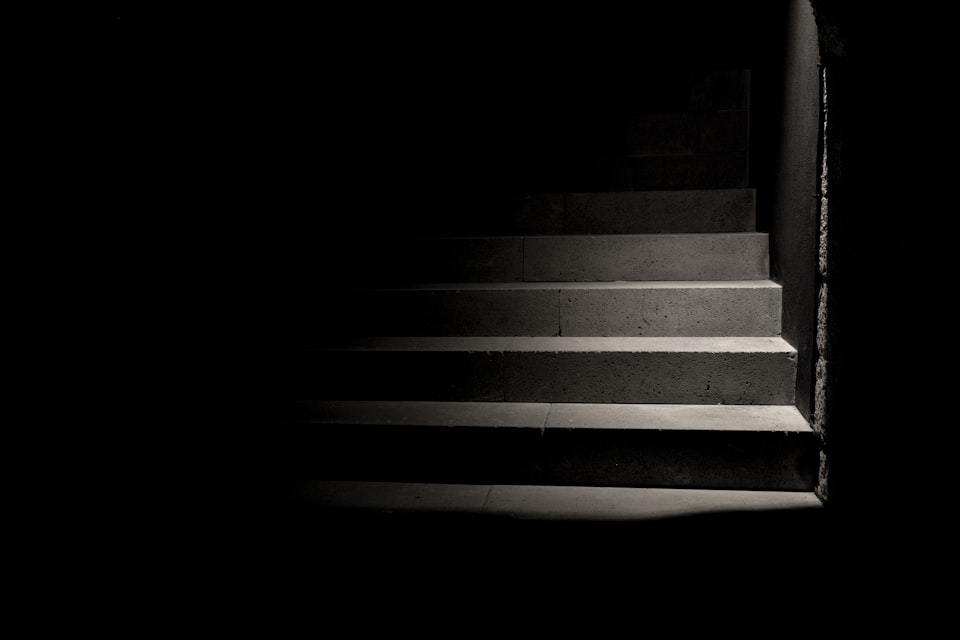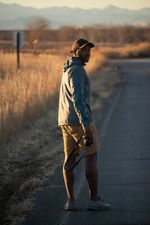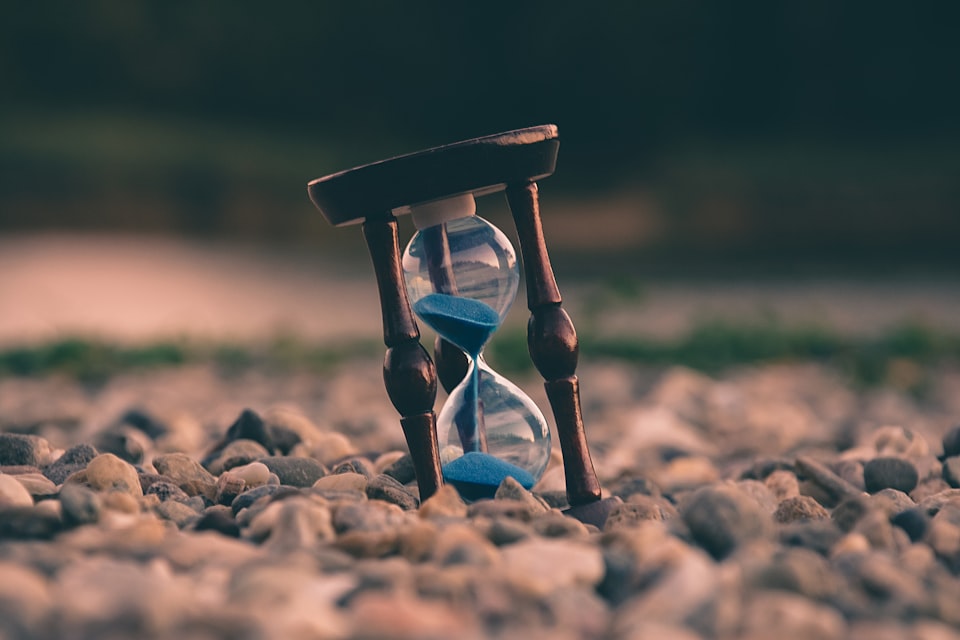Death, therefore, the most awful of evils, is nothing to us, seeing that, when we are, death is not come, and, when death is come, we are not.
-Epicurus
During a psychology class in high school, my teacher said fear could easily be conquered by accepting the acronym False Evidence Appearing Real. As a teenager this made sense to me. When I thought of common phobias—spiders, heights, darkness, snakes—there really wasn’t much to worry about, especially if you live an ordinary life. The snakes and spiders you encounter in most areas can’t harm you. The dark and a fear of heights are just an experience—nothing really happens externally. It’s all mental so they are all rightfully defined as being irrational.
No Fear
I conditioned myself to have no fears over those years. I grew up as most kids in Brooklyn did in the nineties; whether black, white, Hispanic, or Asian, we were always up to something. Drugs, guns, threats, and police violence (before the internet made us realize it wasn’t isolated) were part of everyday life; none of that scared me.
But randomly, in my mid-twenties, I began to get anxiety attacks. I remember the first night vividly. I was watching a twenty-six-episode show I loved—a show I’d already watched ten times. As the final episode concludes, the protagonist dies. I watched him die for the eleventh time. This time, his death was a different experience; something inside of me was triggered.
What happens next? What about the other characters? They were all still alive, so what happens with their life?
The show ended. Everything was over, and my only option was to watch the series from the beginning; watch a life the protagonist already played out and was unable to deviate from in order for him to live again in some form. I panicked. It was late. I was at my mother’s house visiting and she was sleeping in the next room. I quickly grabbed my pillow and yelled into it. I grabbed both ends, sunk my teeth into it like a dog, and attempted to destroy it from every angle. My breathing became heavy and labored.
Throughout the whole attack, I kept repeating, I’m not going to exist one day. That awareness was something that never clicked before. Lack of existence—what did that really mean?
Just A Name: Thanatophobia
I have spent nearly twenty years clinically depressed. I remember going online when I was thirteen, back when we had WebTV. I searched “why am I sad all the time.” (It wasn’t even just me who was sad; everyone I grew up with was sad in some capacity. Something was wrong with all of us, and initially, I accepted it because that’s what life provided.) I saw the word “depression” for the first time and I was intrigued and quickly relieved there was a word for someone like me. There weren’t many resources on the internet in 1998, but I remember reading a webpage and seeing “clinical depression” mentioned.
“If your depression lasts longer than three weeks you should go see a physician.” Three weeks? It’s been about three years.
I also remember reading something along the lines of: I wasn’t allowed to call it clinical depression because it wasn’t diagnosed. (You know how you’re not really dead until someone looks at the time and calls it?) But seeking professional help was out of the question. In my community, mental conditions are something you should just snap out of; they just think you’re sad about something and you’ll get over it in a few days. So I repressed it all. People noticed something was wrong, so I quickly transferred my sadness into anger. Anger is more acceptable than sadness for men—especially black men. I saw the shift and the acceptance, and that was who I was for the next eight years.
In 2009, before the first anxiety attack and during my college senior year, I asked a sociology professor if our lives are inherently for other people. I was losing what little sanity and hope I was holding onto. Most people look for someone to speak to in order to find understanding and an offer of innovative perspective. I went to him because I didn’t want to feel alone with this thought. I knew it was valid. I played out as many life scenarios as I could and they all ended back to someone reaping the benefit of my existence.
Only he who does nothing for his life’s sake can truly be said to value his life.
-Lao Tzu, Tao Te Ching
Jesus Saves
I became a born-again Christian in August 2001—my depression became less of an issue. The allure of god, being able to cast my troubles away, accepting there was a bigger plan being made, and the end goal of heaven warmed my heart and put a joy in my life I hadn’t known since I was six. But the more I studied religion, philosophy, and sociology, the idea of god as I knew god didn’t make sense. My doubt was at an all-time high.
We live, work, and experience all these amazing and shit moments, and then we die. And all we become is a memory in the lives of the people who knew us and are still alive. And then they eventually die, and we then cease to exist in any form.
When I approached my professor I explained my perspective; a perspective I practiced in my mind for two hours to make sure it was clear. He chuckled. “But if you’re dead, why does it matter?”
He didn’t get it. Or he did but didn’t say what I wanted to hear. I got upset.
I had already begun to seriously renounce the Christian god I had once loved dearly. Losing god meant losing the love and comfort that anchored me. During this time frame is when that initial panic attack arrived. Every night, on cue, the attacks would replay. Same routine, same thrashing, same pillow wrestling, and the same desire to release. I suppressed every single night. Always muffled cries and yells into a pillow, unable to freely express my pain.
Who would I be yelling to? Who would hear me? Who would truly say something that could comfort me?
I was alone.
The attacks began to spread out a bit. Sometimes they occurred every night for a week then disappeared for a month. The thought was still there but my body didn’t react the same. When they came back there was nothing to do but accept them. At some point, it would stop like it always did. During the period when it didn’t exist, I could comfortably indulge in my depression, which felt more manageable.
Gateway
“In my experience, I've found that grief and loss are the common denominators of most mental health issues. We, as a society, don’t know how to cope with grief and loss. We end up not dealing with these issues while creating mental health issues such as anorexia, addictions, and abuse,” notes Kriss A. Kevorkian, Ph.D., MSW, one of a few people to hold a doctorate in thanatology—the study and science of death, dying, and bereavement.
Between 2010 and 2013, liquor became a part of my daily ritual. A bottle of rum or whiskey or cognac a day, mixed in with frequent bar-hopping and a beloved flask, became my solace. I knew that staying up late would lead to panic attacks, so when I was alone I drank to numb my brain; when I was with people, I drank to keep my focus on something else. Both scenarios ensured I passed out the moment I was home.
The attacks rarely happened outside of my apartment. The feeling of solitude and darkness can’t exist in the bright lights of the New York City Transit. But one night as I sat on the Brooklyn-bound Q train, not too drunk but not too sober, nonexistence came into my mind again.
What’s the point of doing anything? Existence is pointless. Even if you exist in some capacity after your human death, it won’t be like this. Dust to dust, yea. Everything is part of the same universe but a human is not a dog, not a tree, not a bench.
The labored breathing began and I feared releasing my usual energy on the train; so I sat there and cried as the train rode across the Manhattan Bridge.
I slowly began to develop a death wish, not out of fear but out of curiosity. I wanted to know what was next and I didn’t want to wait. It’s the greatest science experience a human can ever accomplish, was my rationale. My greatest fear became my greatest desire. I tried talking to friends and family about it but everyone offered the same standard replies:
“But whatever you create and give the world adds onto your legacy and that will live on.” (Steve Jobs is fading out of importance as Tim Cook propels Apple into the next decade.)
“If you have kids, you’ll live through them.” (No one lives through someone else. This is a scripted response that people are conditioned to believe.)
I stopped bringing it up. I was alone and disconnected from everyone. I reverted back into my panic attacks to find comfort in a familiar place where I existed and knew the truth, as I saw it.
A Name With Power
One night in 2012, I went on the internet and searched “fear of death” and a name appeared: thanatophobia. A rush of calm fell over me. It’s selfish, but it felt good to know that others were going through this same experience. For any type of mental or physical ailment, just knowing there is another person out there suffering makes you feel better. Thanatophobia is defined as an abnormal and irrational fear. Many phobias are abnormal or irrational because there is no true manifestation. But death is absolute. It happens. Always. It is a very rational fear. If you Google “thanatophobia,” you’ll find definitions and a host of discussion boards with people reaching out for comfort and support, but no true help. Still, I had a name and that was a start.
During my research, the most obvious answers were presented to me. But they were ideas I never considered. The show may have triggered the fear but the idea was dormant in me since I was six years old—too early of an age to be aware of death—when I found out my biological father was murdered. Four years later, at the age of ten, my godfather was murdered. Growing up in Brooklyn, death was and still is very present (gentrification hasn’t changed that). People disappeared from the neighborhood. I grew up with my eyes glued to the television. Death gets paraded so carelessly. People die, they stop existing, and no one makes mention of them again. Most people see it for what it’s portrayed as, and they can accept that—but I saw the bigger theme.
Even looking back at my days as a Christian, what did “life” in heaven mean? If I reached that experience but the people I knew and cared about weren’t there, how could I truly be happy? The idea of heaven as we know it would require the removal of memories and emotions. We would be shells with the idea of praising god as our only means of eternal existence. That sounds wack.
Self-Healing
I eventually began to find a bigger purpose and understanding. Through yoga, meditation, sunshine, shoreline, and health, I found a space where my panic attacks couldn’t manifest. Death didn’t matter because there was something greater out there. I found solace and came to terms with the universe being my god.
However, in mid-2015, the panic attacks returned. Although I was distraught, a year away from them and not sinking deep into a feeling of despair was a welcomed gift. My depression was still ever-present and came back into the forefront as I watched the world burn. I stayed up late at night watching the Ferguson incidents after Michael Brown was murdered, I read the news, I heard the commentary, and I watched as hatred for blacks became center stage.
I don’t belong here. I’m not wanted here on this Earth.
Depression makes you feel worthless. Blackness makes you feel undesired and unwanted in existence. I reverted back to my comfortable space.
One night I went on Facebook, hoping and looking for someone to talk to about thanatophobia. I was reaching my breaking point. I found a group. A group of people like me who feared nonexistence and the unknown. I introduced myself on the page, read a few recent posts, and felt relieved I had people to talk to.
In the group, someone uploaded a PDF of Staring at the Sun: Overcoming the Terror of Death by Irvin D. Yalom. They said it helped them find momentary peace so I followed suit. I knew the only way I would find peace would be through finding hope in an external source. At the time I was already reading Super Brain by Rudolph E. Tanzi and Deepak Chopra and felt it would make a great companion book.
Super Brain allowed me to rethink how I view my existence, my body, how I condition my brain and the life experience.
“When you come down with a bad cold, no matter how much you are suffering, you don’t say, ‘I am a cold.’ You say, ‘I have a cold.’ But linguistics is such that you don’t say, ‘I have depression.’ You say ‘I am depressed,’ which means you identify with that condition . . . There’s an intimate link at the level of physiology, and if you control the link, you can change anything.”
Staring at the Sun brought comfort and calm in reframing and accepting death. That comfort lasted for a few months. There is only one reality that I know.
Although mysticism has become a larger part of my reality, although I accept the universe as god, there is a deeper question that still remains; what is the purpose of this life experience? The universe can’t reward or punish us based on our decisions during this experience; the field is uneven. Therefore, life has no value. Although I accept that consciousness and brain function are separate experiences, due in part to reading Super Brain, and although I tell myself that that separation means there is more, I don’t really believe it. I can’t lie to comfort myself. Nonexistence is infinite, and life is a brief stop through infinity.
I've found the answer to the purpose of this life experience. Coming soon.
This article originally appeared on Captapult.



